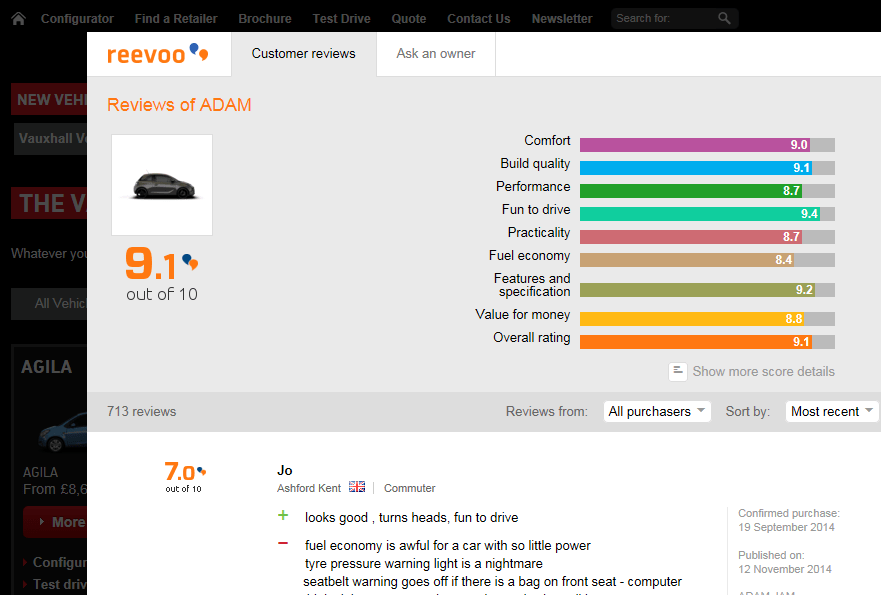
Archive | InBrief
When policies and procedures negatively impact customer experience
When policies and procedures negatively impact customer experience
Firms put increasing effort into measuring, enhancing and refining customer experience, recognizing that building brand and product advocacy is central to prolonged business success. Conventional wisdom focuses on the relationship between a brand and its customers, a bi-directional relationship based on providing products and services that meet or exceed customer expectations. Now let’s put a disrupter into that relationship – other customers.
In the vast majority of sectors and consumer businesses, the impact of one customer to another is through the advocacy of the business in question. Consumers increasingly use digital channels to rate and critique their experiences, providing customer reviews that when accumulated, provide an excellent perspective to other prospective customers. Think Trip Advisor, Yelp, eBay feedback, and so on. Many firms put themselves out-front at some risk to themselves and provide public feedback channels on their own products and services.
Here’s an example from UK car manufacturer Vauxhall who publish reevoo reviews of their cars right on their new car webpage. There is no doubt that this consumer ‘behavior’ encouraged by the product manufacturer is impacting the customer experience of other customers. However, it is hard to argue that the impact of this behavior is anything but positive. Consumers are able to approach a purchase armed with real observations with which to make an informed decision; not having to rely solely on the honesty of a salesperson’s rhetoric and a ten minute test drive.
So, is there a consumer business where the policies and procedures of the service provider induce behavior in consumers that directly and negatively impacts the customer experience of others? If so, what strategies should businesses employ to reduce the negative impact and how do they recognize and isolate the offending policy or procedure?
There is one sector that seems to have cornered this particular customer experience scenario. Taken a commercial flight lately? If so, does this sound familiar; wading through the passengers packing the boarding area desperate to get on ahead of fellow passengers to grab valuable overhead space, quietly seething when the person in front of you puts their rollerboard, briefcase and jacket in the overhead depriving you of your rightful space, then waiting in dread that the person in front of you puts their seat back during a day time flight? Let’s face it, commercial flying can be a chore, one made worse through the policies and procedures of the airlines themselves. Those policies encourage some to behave in ways that induce frustration and resentment in other passengers, negatively impacting their customer experience. Hardly a virtuous circle.
Occasionally airlines minimize the impact of these policies through mitigation techniques; Monarch Airlines in Europe is rolling out seats fleet-wide that have fixed seat backs, more practical storage and thinner profiles following customer surveys suggested 90% of flyers preferred non-reclining seats. Southwest has passengers line up according to boarding sequence ahead of boarding. Many airlines allow gate checking of cabin bags for retrieval on the jet way at your destination.
The intent of this blog is not to beat down on the airline industry, one which is faced with unique challenges in carving out a profitable business. In fact the genesis of this piece was to investigate other sectors and examples where this particular concept presents a risk to customer experience and satisfaction, and to consider the factors that lead organizations to risk customer satisfaction by driving other customers to behave in a way that is perceived negatively. I raise the question what strategies can be put in place to counteract the risk?
Plus, it’s not all bad news in the airline industry, which over its collective history, has failed to make a profit. Consider JetBlue, the airline that has taken the concept of customer service to the heart of its mission, carving out a profitable business by providing superior customer service compared to their competition. JetBlue has achieved industry leading Net Promoter Scores (NPS)1 and have used the feedback from NPS surveys to enhance their services and policies to maximize customer satisfaction, and increase profit levels. It will be interesting to see what impact JetBlue’s recent reversal of its one free checked bag policy, implemented at a time when most airlines were moving in the other direction, will have on the customer experience and their NPS as JetBlue fliers fight for overhead space along with the rest of us.
- Satmetrix Net Promoter(R) industry rankings.